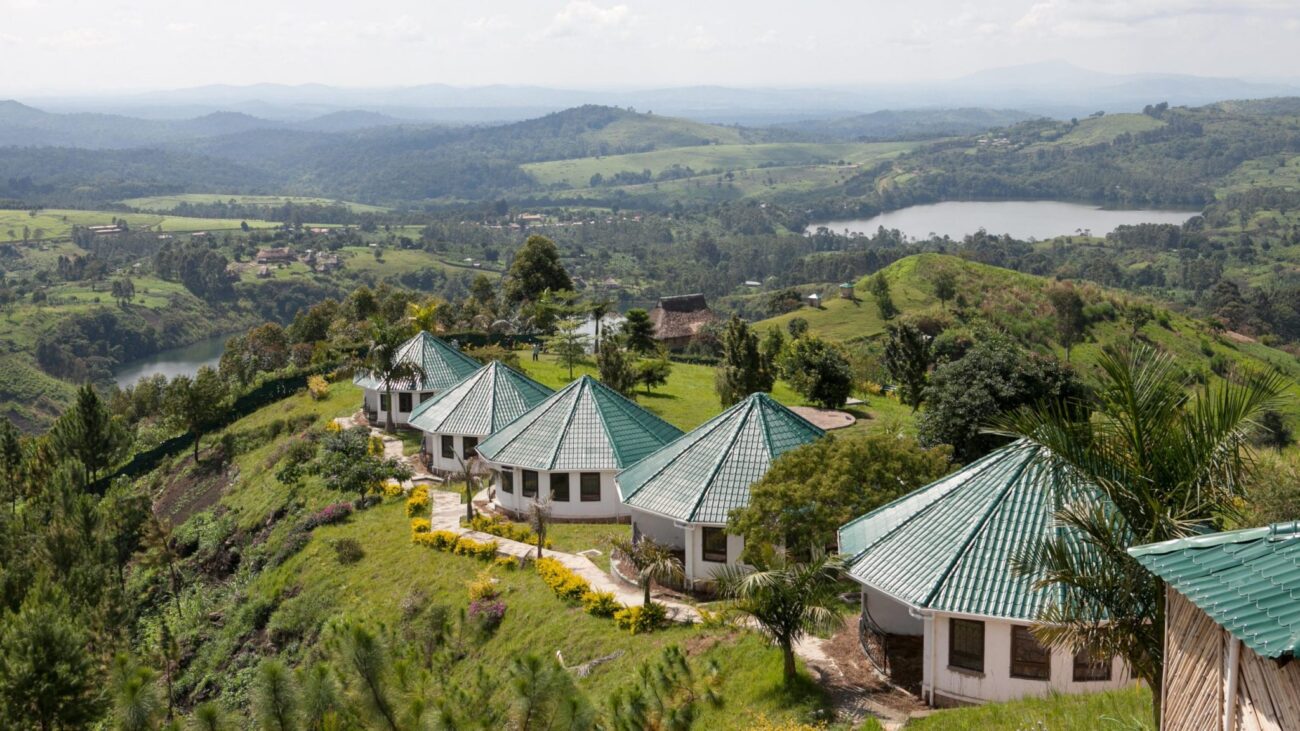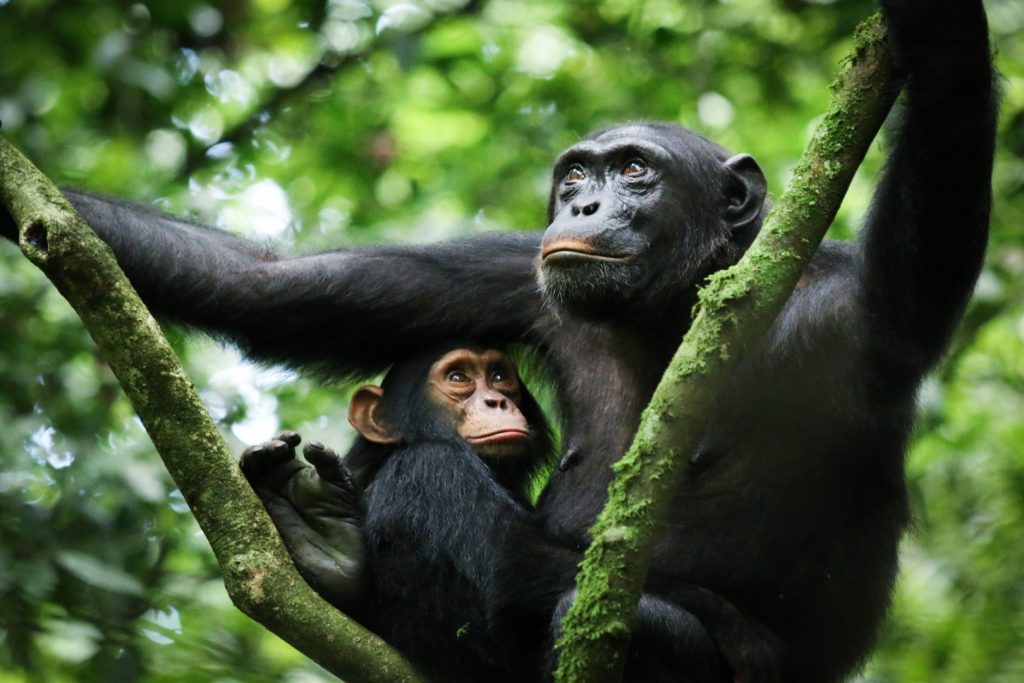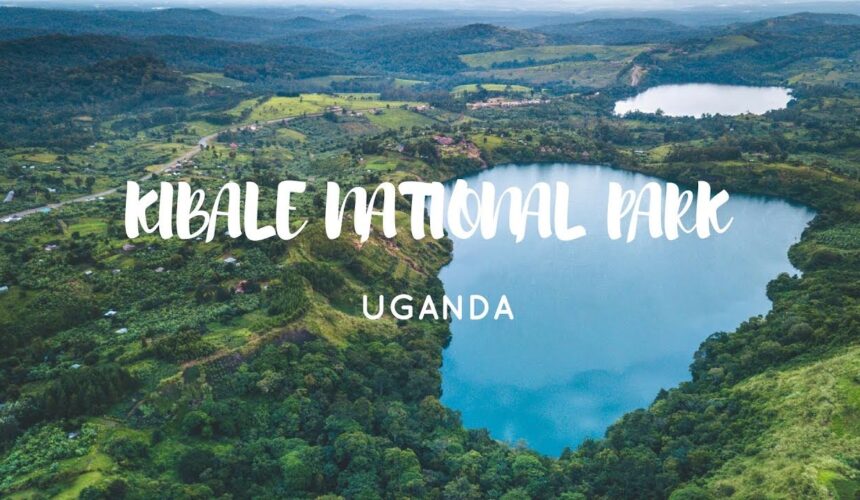Kibale National Park is a jewel in western Uganda, recognized as one of the best primate destinations in the world. Spanning over 766 square kilometers, this lush expanse of moist evergreen rainforest is famed for its incredible concentration of primates—and most notably for its habituated chimpanzee communities. Whether you’re planning an intimate chimpanzee trekking expedition or a broader wildlife safari, Kibale offers an immersive experience deep in the heart of Uganda’s tropical wilderness.
Location, Geography, and Diverse Landscapes

Located in the Kibaale District of western Uganda, Kibale National Park forms part of a vital wildlife corridor that links with the adjacent Queen Elizabeth National Park. Ranging in elevation from 1,100 to 1,600 meters, the park’s varied terrain includes both lowland and montane forests. This remarkable mosaic of ecosystems is characterized by dense tropical canopies, riparian zones along winding streams, and areas where nature’s exuberant growth creates a haven for wildlife. Kibale’s evergreen forests are a rarity in Eastern Africa—sustaining pre-montane habitats that harbor a diversity of flora and fauna rarely seen elsewhere in the region.
A Rich Historical Tapestry and Cultural Heritage
Kibale’s story is as dynamic as its ecosystem. Originally gazetted in 1932 and later established as a national park in 1993, Kibale was once managed as a logged forest reserve before being recognized for its unparalleled ecological and tourism value. The park’s history is interwoven with the lives of local communities, including the Batooro and Bakiga peoples, who have long maintained a close-knit relationship with the forest. Their traditional knowledge, practices, and cultural narratives enhance the visitor experience—offering insights into sustainable living and conservation practices that have allowed Kibale to thrive despite pressures from development and natural resource demands.
Abundant Wildlife and Spectacular Primate Biodiversity
At the very heart of Kibale National Park is its remarkable primate population. Home to 13 species of primates, the park is particularly celebrated for its populations of chimpanzees, red colobus monkeys, and the rare L’Hoest’s monkey. Guided chimpanzee treks allow visitors to observe these intelligent creatures in their natural habitat, often up-close and personal—a once-in-a-lifetime experience for wildlife enthusiasts. Beyond primates, Kibale hosts a vibrant array of birds, reptiles, and small mammals. Whether you’re following a troop of cheeky colobus monkeys or scanning the forest canopy for elusive birds, the park’s rich biodiversity provides endless wonder and discovery at every turn.
Safari Adventures: Chimpanzee Trekking and Beyond
A visit to Kibale is not just about watching primates—it’s an invitation to embark on diverse wildlife adventures in an untouched natural setting. Popular activities in the park include:
- Guided Chimpanzee Treks: Walk side-by-side with experienced guides as you traverse well-worn forest trails in search of the park’s celebrated chimpanzee communities. These treks provide a unique window into the social dynamics and daily lives of our closest living relatives.
- Primate Walks and Nature Hikes: Venture into the depths of the rainforest, where interpretive trails reveal the subtle beauty of diverse flora and the hidden sounds of the forest.
- Bird Watching: With over 441 species of birds recorded, early morning excursions lend themselves to intimate birding sessions under soft tropical light.
- Photography Expeditions: The interplay of light filtering through dense foliage, coupled with the vibrant colors of forest wildlife, creates perfect moments for both amateur and professional photographers.

Each activity is designed to immerse you completely in Kibale’s lush environment and to foster a deep connection with the natural world.
Conservation, Eco-Tourism, and Community Engagement
Conservation efforts in Kibale National Park are a cornerstone of its continuing success as a tourism haven. Managed by the Uganda Wildlife Authority, the park not only serves as a critical refuge for endangered wildlife but also supports local communities through sustainable tourism and educational initiatives. Research carried out at the Makerere University Biological Field Station has contributed significantly to our understanding of tropical ecology and primate behavior, helping to shape practices that ensure both environmental preservation and community benefit. By visiting Kibale, travelers actively support these conservation efforts—ensuring that this unique haven of biodiversity can be enjoyed by future generations.
Practical Tips for Your Kibale Adventure
A well-planned trip to Kibale National Park enhances the experience and ensures a safe, enjoyable journey. Here are some recommendations:
- Optimal Timing: The best time to visit Kibale is during the drier months—from mid-December to February and from June to August—when the forest trails are more accessible and wildlife viewing is at its peak.
- Travel and Access: Kibale is situated approximately 26 kilometers southeast of Fort Portal, making it accessible via a scenic drive along the western Ugandan highlands. Be sure to plan ahead for transportation, as local roads can be winding.
- Packing Essentials: Light, breathable clothing in neutral tones, a sturdy pair of hiking boots, insect repellent, a hat, and a good pair of binoculars are critical. Remember to pack a camera to capture memorable moments on the forest floor.
- Local Guides: Hiring an experienced local guide is highly recommended—they bring invaluable insights into the forest’s hidden secrets and guarantee a richer, safer safari experience.
A Call to Adventure: Embrace the Magic of Kibale
Kibale National Park is not merely a destination—it’s an invitation to witness the profound beauty of East Africa’s tropical wilderness firsthand. Every moment spent under the verdant canopy, every encounter with a curious chimpanzee or flamboyant bird, and every step along a shadowed forest trail connects you with nature in the most intimate way. Embrace the spirit of discovery and conservation as you explore Kibale’s timeless forest and join a community of travelers dedicated to protecting our planet’s natural heritage.
Additional Insights:
For those passionate about wildlife photography and immersive nature experiences, consider joining specialized tours or workshops at Kibale National Park. These immersive programs not only deepen your understanding of primate behavior but also provide hands-on opportunities with conservation experts dedicated to preserving one of Africa’s most extraordinary tropical forests.
Happy trekking and safe travels on your unforgettable journey into the heart of Kibale National Park!






Alexo Rizus
Prospective ollaboratively empower multifunctional e-commerce for applications. Seamlessly productivate plug and play markets.
Alexo Rizus
Researched competently provide access to fully methods of empowerment without sticky models.